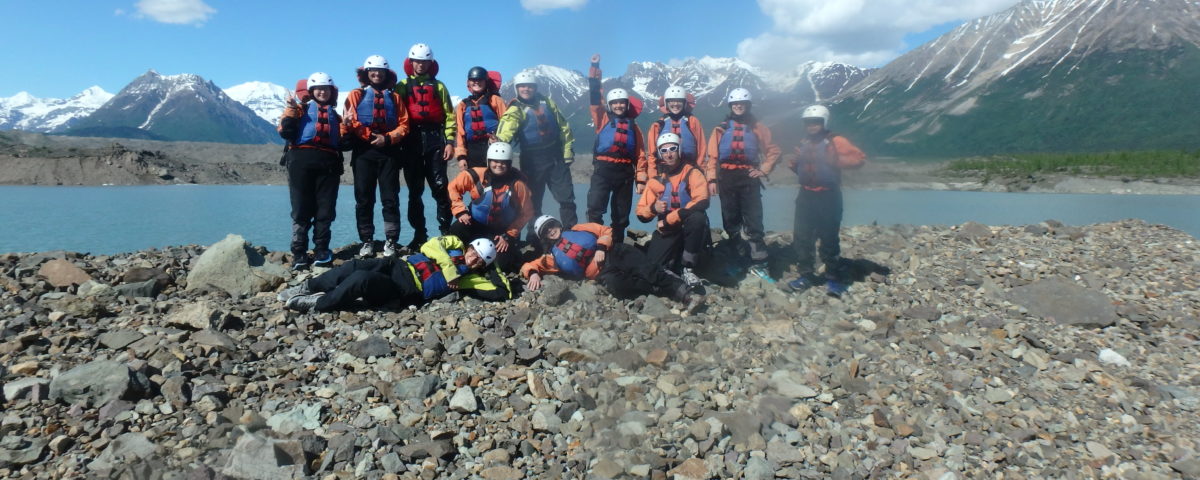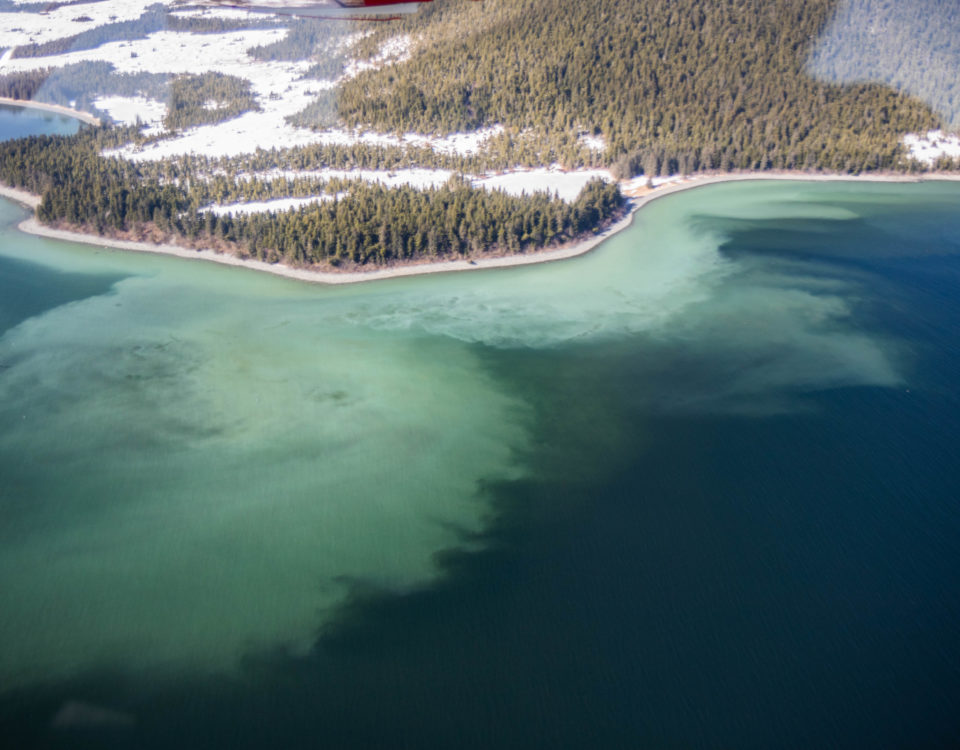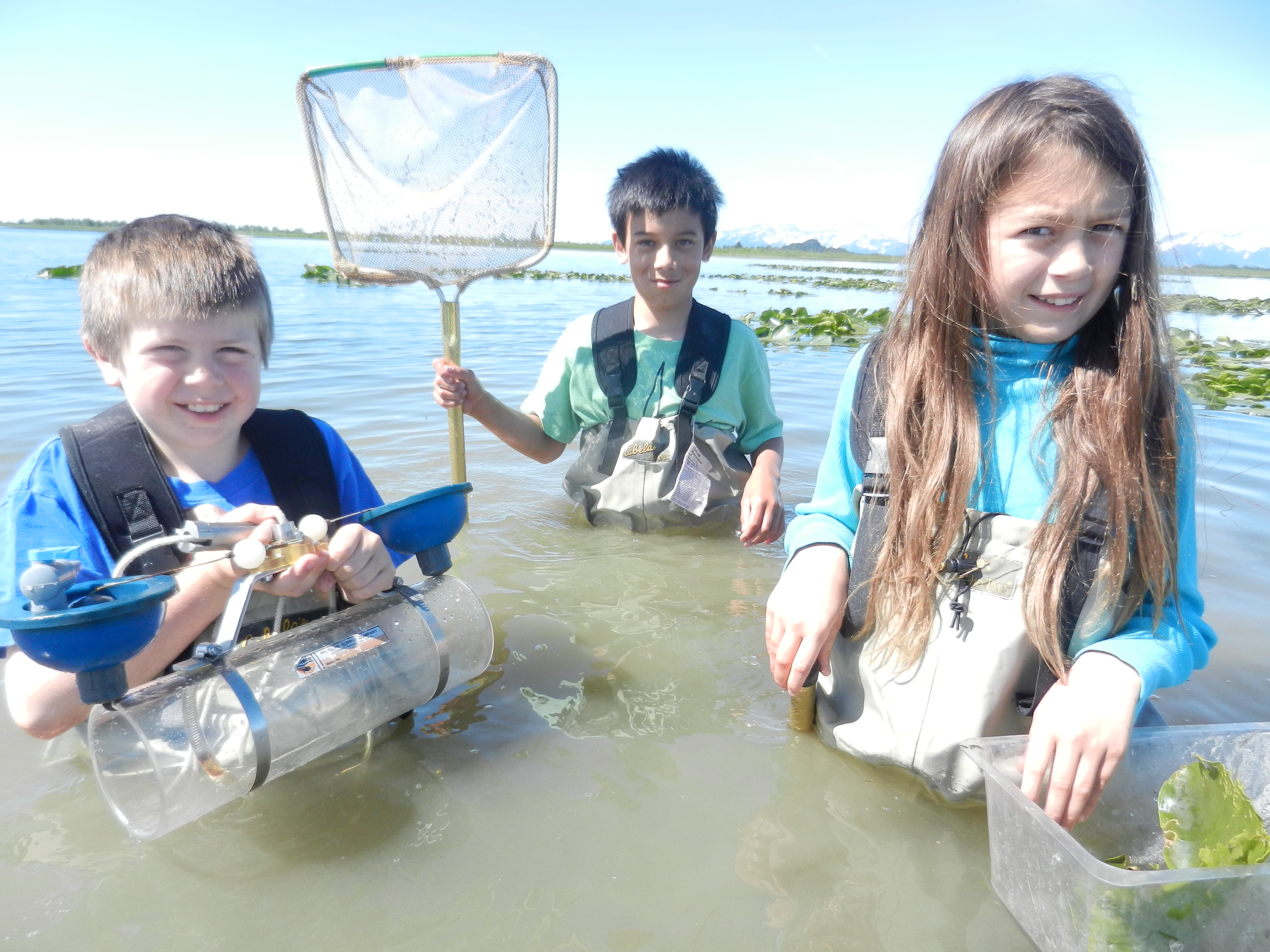Copper River Stewardship Program: “Ed-venture” of a Lifetime

By Kate Trudeau
Ten teens wrapped up an “ed-venture” of a lifetime with the Copper River Stewardship Program. With origins in Cordova, Nebesna, Slana, Kenny Lake, Chitina, McCarthy, and Copper Center, the stewards traveled throughout the Copper River watershed to connect with their peers and the place they call home.
The primary focus of this year’s expedition was the invertebrates that contribute to the health and wellbeing of our ecosystems and communities. Students investigated alpine lakes, rivers, ponds, tide pools, glaciers, and Prince William Sound for invertebrates and environmental parameters. The data they collected, including species counts, dissolved oxygen, pH, temperature, and salinity, can be viewed on the ArcGIS map they created.
When asked what they learned about the watershed, one steward wrote, “Upriver and downriver activity can go both ways and [the ecosystem] is far more connected and fragile than I expected.”
In addition to collecting data and comparing ecosystems, stewards met with scientists, resource managers, and professionals in STEM fields, exposing them to careers available within the watershed.
The trip was not just data collection and science though. In addition to daily science lessons, the stewards hiked Pipeline-McKinley trail, canoed Alaganik Slough, crossed Prince William Sound on a sailboat, swam in the ocean, rafted the Kennicott River, and walked on Root Glacier in McCarthy. Trying these new activities, with a diverse group of peers, had the biggest impact on the stewards’ collective experience. One steward expressed, “I feel I’ve become more confident in my interactions with unfamiliar individuals….and I did everything I thought I was scared to do.”
If you know a teen interested in joining the 2024 Copper River Stewardship Program, visit our website and learn what it takes to be a Copper River Steward.
This program was made possible through partnerships with Wrangell Institute for Science and Environment, Copper River Watershed Project, Bureau of Land Management, and the National Park Service. Support for the program comes from Prince William Sound Regional Citizens’ Advisory Council, Alyeska Pipeline Service Co., Kate Svitek Memorial Foundation, and The Alaska Community Foundation.










